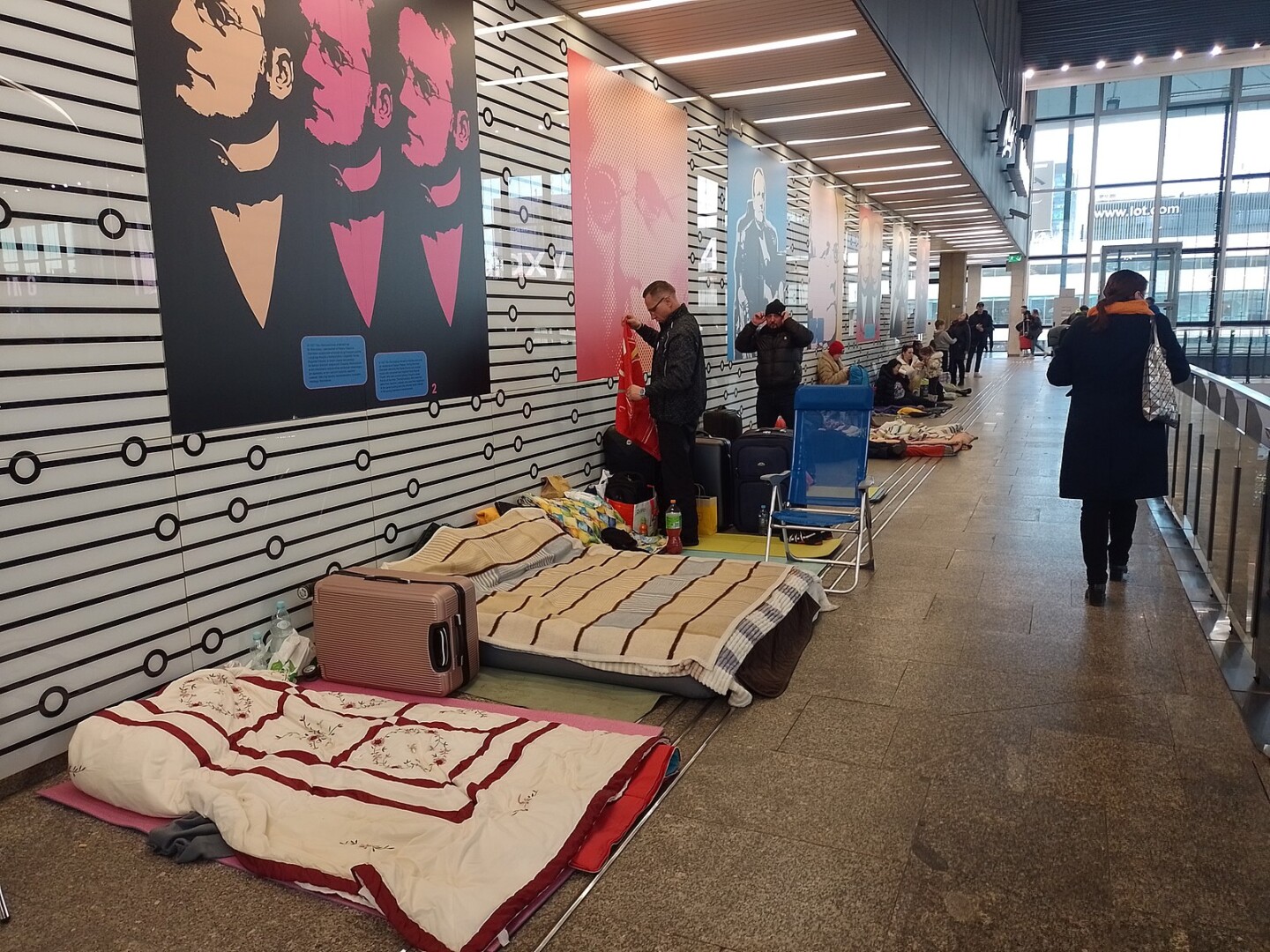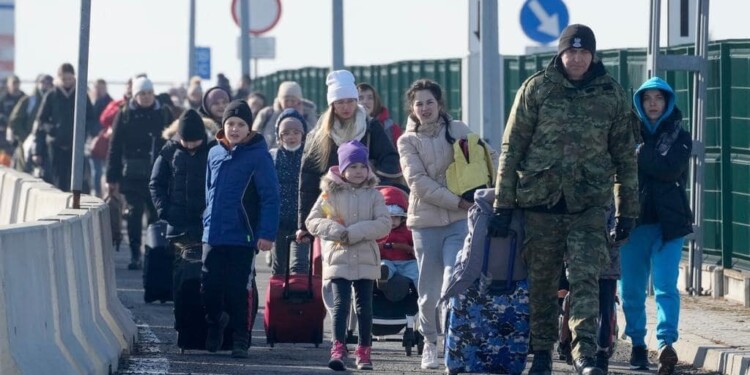Since the beginning of the conflict in February, the United Nations estimates that over 11 million people have left their homes, becoming Ukrainian refugees in their own country and continent
5.2 million are believed to have fled to neighbouring countries, and 6.5 million have been displaced within Ukraine. Of these, many coming from Kiev and Eastern Ukraine moved to Western Ukraine at the beginning of the Russian invasion. For these migrants, the UN is working with NGOs to offer humanitarian assistance such as delivering supplies, money, and setting up transit points.
As of the 25th of April, the UN says that over 5.2 million people have fled Ukraine. The UNHCR data findings show that the large majority of this number have gone to Poland, which welcomed three million refugees by the 25th April. Elsewhere, the numbers total:
- Romania: 782,598 refugees
- Russia: 614,318
- Hungary: 502,142
- Moldova: 435,275
- Slovakia: 357,560
- Belarus: 24,578.
(The sum of this data may be higher than the total number of refugees as it includes those crossing from Moldova and into Romania in both countries’ totals, as well as movement into and out of the Schengen area).
When Ukrainian migrants reach the aforementioned countries bordering Ukraine, they usually stay with relatives or friends, or in reception centres, where they are given assistance.
So far, the EU has granted Ukrainian refugees a ‘blanket right’ to stay and work in the EU for up to 3 years, also receiving access to social welfare, housing, healthcare, and education in one member state at a time. This could be extended to 2024, and even 2025, if the reasons for protection are deemed by the European Commission to ‘persist’.
However, there are challenges ahead. How will the Ukrainian refugee situation progress in the EU in the long term?
The long-term solution to the immigration influx
Whilst most EU countries are currently mobilising resources to sort housing and refugee support, with time this process is subject to change. The rationale of welcome implicated by most EU states in its migration reception is vulnerable to changing attitudes due to the perceived costs of providing refuge.
The Polish government has called for more funding from the EU to deal with their refugee intake, and Moldova, (with the highest number of refugees per capita) has also appealed for help. The UN and its partner organisations have so far received 44% of the US$1.1 billion they are asking countries for to support Ukrainian refugees and host countries from March to August 2022.
12 million people in Ukraine are estimated to be stranded or unable to leave areas affected by the fighting. With further developments, these groups could migrate to neighbouring countries, which would increase the already-existing strain on the main migrant-receiving nations.
The pressure is on host country administration and governments to address their own citizens’ interests with regards to anxieties about the immigration influx, whilst ensuring that the concerns of refugee groups are secured. Measures must be taken to maintain stability within populations and prevent any anti-refugee sentiment or discrimination.
Ukrainian people may not be able to return to Ukraine for years. Current solutioning for short term problems of funding, coordination and management may not cater to long term challenges posed by the Ukrainian refugee situation.
Related Articles: Ukrainian Refugee Crisis: Unprecedented – What is the Response? | Ukraine Refugees and the EU: As Numbers Rise, EU faces questions
Long term concerns include economic costs for the EU, inter-country integration, and uncertainty about how many migrants the war will create, which can threaten unanimous support for refugee intake.
It is another challenge to determine what the future will be like for Ukrainian refugees themselves. From the experiences of populations displaced in other violent conflicts such as Afghanistan, generations raised in places of refuge are now often less likely to return to their home country.
Should the Ukrainian conflict reach a ‘peaceful’ resolution within 2022, refugees could return to Ukraine and repatriate, looking towards reconstruction. But if the war continues for longer, with more time displaced people can form social networks and work opportunities in host countries, meaning they are more likely to stay.
The EU invoking its Temporary Protection Directive for the first time for Ukrainian refugees, and European reserve funds aiding states with their refugee programmes could increase the likelihood of migrants staying too.
Long-term solutions proposed by the EU in the 2015 migration crisis included voluntary repatriation, resettlement overseas and intra-European integration.
So far, the EU has not openly proposed a long-term plan for the status of Ukrainian refugees in Europe. The Temporary Protection Directive showed EU countries willingness to welcome refugees, which may have long term merits on unity between member states and support for Ukrainian accession to the EU. However, this could just be ‘temporary’, if member states’ deeply-rooted divides over migration arise, contentions over responsibility-sharing could grow.

Photo Credit: Wikimedia Commons
In sum, before the three-year period of protection granted by the EU’s temporary direction are up, debates over EU relocation and asylum seeking need to have taken place and solutions found, so that the long-term future of Ukrainian migrants in Europe can be decided and the best options selected.
Long term solutions are not only necessary for Ukrainian refugees, and so proposed solutions must not discriminate based on nationality. Ukrainian refugees must be seen keeping in mind the past experience with the refugees that have arrived in Europe in the past. Whether from Turkey and Italy fifty years ago or whether from Syria, Afghanistan and various African countries more recently, it must be understood that there should be no hierarchy between refugee arrivals. The problem of integrating migrants who wish to stay, either permanently or for a number of years, remains whole and needs to be addressed in a just manner – the objective being to give everyone who has shown the will and capacity for work, a chance for a dignified life.
To arrive at working solutions that will satisfy both the host country citizens and the refugees, it will be necessary to realise: first, that refugees are not the economic “burden” that some believe they are; second, be ready to welcome those willing to adapt to the host country and respect its customs; and third, provide adequate job opportunities with scope for development.
Historic data has shown time and again that refugees that are well-integrated in the labour market add to GDP and do not subtract from it. But institutional solutions need to be found to achieve that “integration” and those are the ones that need to be discussed, developed, agreed to and implemented.
Editor’s Note: The opinions expressed here by Impakter.com columnists are their own, not those of Impakter.com. — In the Featured Photo: Ukrainian refugees entering Poland, 2022. Featured Photo Credit: Wikimedia Commons.










